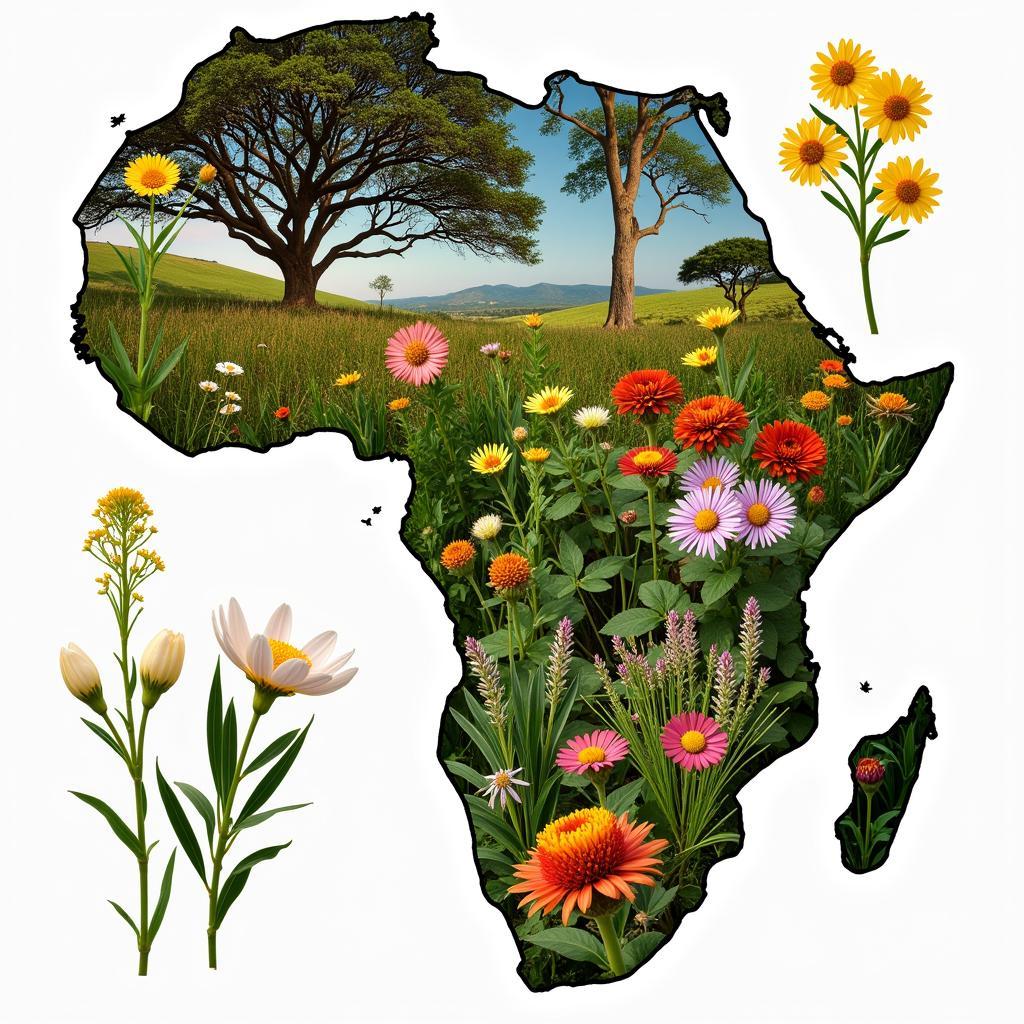The African Herbal Pharmacopoeia, a rich tapestry of traditional knowledge passed down through generations, holds immense potential for both healthcare and cultural preservation. For centuries, African communities have relied on the healing power of plants to treat a wide range of ailments, developing a deep understanding of the medicinal properties found in nature’s bounty.
A Legacy of Healing: The Roots of African Herbal Medicine
The use of medicinal plants in Africa is deeply intertwined with spiritual beliefs, cultural practices, and ancestral wisdom. This holistic approach views illness not merely as a physical malfunction but as an imbalance within the individual and their environment. Herbalists, often highly respected members of their communities, act as intermediaries between the physical and spiritual realms, carefully selecting and preparing remedies to restore harmony and well-being.
Beyond the Mortar and Pestle: The Science Behind the Tradition
While often perceived solely through a cultural lens, the African herbal pharmacopoeia is increasingly recognized for its scientific merit. Modern research is beginning to unravel the complex chemical structures and pharmacological actions of many plants used in traditional medicine, validating their efficacy and revealing exciting possibilities for drug discovery and development. For instance, plants like Artemisia annua have gained global recognition as a source of artemisinin, a powerful antimalarial compound.
 Diversity of African Medicinal Plants
Diversity of African Medicinal Plants
Navigating the Future: Challenges and Opportunities
Despite its undeniable value, the African herbal pharmacopoeia faces challenges in the modern world. Habitat loss, unsustainable harvesting practices, and lack of documentation threaten the preservation of this invaluable knowledge. Furthermore, concerns regarding quality control, standardization, and intellectual property rights need to be addressed to ensure the safe and ethical integration of traditional medicine into mainstream healthcare systems.
Preserving the Past, Empowering the Future
Protecting and promoting the African herbal pharmacopoeia is not just about safeguarding cultural heritage; it’s about unlocking the potential of a continent to contribute to global health solutions. By supporting research, promoting sustainable harvesting, and fostering collaboration between traditional healers and modern medical practitioners, we can ensure that the wisdom of the past continues to illuminate the path towards a healthier future for all.
Frequently Asked Questions
What are some common plants used in the African herbal pharmacopoeia?
Many plants are used, with each region having its specific herbs. Some examples include Aloe vera for skin conditions, Aspalathus linearis (Rooibos tea) for its antioxidant properties, and Harpagophytum procumbens (Devil’s claw) for inflammation.
How are herbal remedies prepared in African traditional medicine?
Preparation methods vary greatly depending on the plant and its intended use. Common methods include drying and grinding into powders, making infusions or decoctions (teas), creating poultices, or extracting oils.
Is it safe to use African herbal remedies?
Like any form of medicine, it’s essential to exercise caution. Consulting with qualified traditional practitioners or healthcare professionals knowledgeable about herbal medicine is crucial to ensure safe and appropriate use.
What role can modern science play in understanding African herbal medicine?
Scientific research can help to validate traditional uses, identify active compounds, assess safety and efficacy, and explore potential new drug development avenues.
How can I support the preservation of the African herbal pharmacopoeia?
Support organizations working in this field, promote sustainable harvesting practices, learn about and respect traditional knowledge systems, and advocate for the integration of traditional medicine into healthcare systems.
For any further questions or assistance, feel free to contact us.
Phone Number: +255768904061
Email: [email protected]
Or visit us at: Mbarali DC Mawindi, Kangaga, Tanzania.
Our dedicated customer service team is available 24/7 to assist you.
Leave a Reply